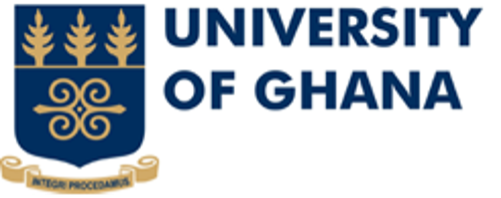
Project Director
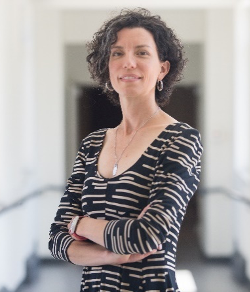
Meredith Terretta (History, University of Ottawa)
Meredith Terretta is a Professor of History at the University of Ottawa. She is trained with regional expertise in equatorial African history and researches the history of international law and the way that state and non-state actors shape and deploy it to claim rights. She has carried out archival and oral research in both Ghana and Cameroon.
Responsibilities/strengths: As a French-English bilingual engaged scholar with two decades of experience developing and maintaining relationships with colleagues in West and Central Africa, Terretta contributes to training workshops in Ottawa, Accra, and Douala, particularly in the areas of archival research, oral history, and the concept of legal pluralism, training students to examine the ways that international, domestic and “customary” laws act upon and are transformed by refuge seekers. She coordinates activities in Ottawa and facilitates relationships between co-directors, collaborators, partners, students, and advisory council members over the life of the project. She expands the partnership in Ottawa by inviting collaborators to participate in mentorship and training activities and seeks non-academic partners to build the partnership’s intersectoral strengths.
Co-Directors
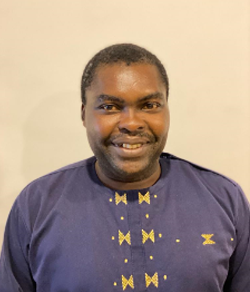
Ernest Messina Mvogo (History/IR, University of Douala-CERDYM)
Co-Director Ernest Messina Mvogo is Vice-Dean for admissions, Statistics, and Students Welfare at the Faculty of Letters and Social Sciences, Associate professor of History, and coordinator of the research laboratory Centre de Recherche sur les Dynamiques des Mondes contemporains (CERDYM) at the University of Douala. He draws on his specialization in Central African International Relations in his research on forced migration.
Responsibilities/strengths: In Ottawa, Accra, and Douala, Co-Director Mvogo trains students in applying an international relations framework to study how regional relationships between receiving and sending states act upon refuge seekers in the IRTG’s two adjacent regions of focus, West and Central Africa. He mobilizes collaborators to participate in the IRTG in Douala through CERDYM’s network of engaged regional researchers. Messina Mvogo coordinates the IRTG activities in Douala and expands the partnership by reaching out to local associations working with the displaced thus pursuing avenues for knowledge mobilization beyond academia.
http://www.cerdym.org
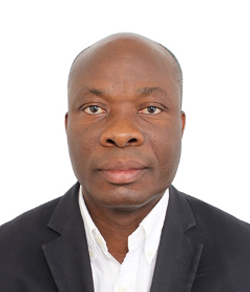
Michael Okyerefo (Sociology, University of Ghana-Legon)
A Professor of Sociology at the University of Ghana, Co-Director (CD) Okyerefo’s recent work embraces African perspectives on alternative ways of producing, classifying, and disseminating knowledge. He seeks to advance global sociology through studying transnational networks and migration and promoting African social thought and conceptual categories.
Responsibilities/strengths: In interdisciplinary workshops and research seminars in Ottawa, Accra, and Douala, Okyerefo trains doctoral students to develop a greater appreciation and understanding of indigenous African knowledge and culture. He coordinates IRTG and knowledge mobilization activities in Accra, fostering relationships between students in the cohort with researchers at UG. He contributes to the expansion of the partnership by pursuing connections with non-academic partners.
https://www.ug.edu.gh/sociology/staff/michael-p-k-okyerefo
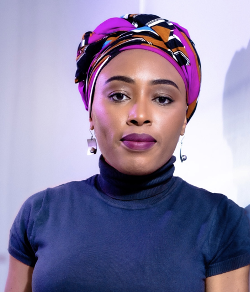
© Eyecontact Photography
Rose Ndengue (History, Glendon College-York University)
Co-Director Ndengue is an early career scholar at York University—Glendon College. She is a leading voice in an emerging Black feminist critique of knowledge production and knowledge mobilization practices (Belinga, Eched & Ndengue 2019). Ndengue is a community-engaged scholar in the field of transnational Black feminist studies and has researched extensively in France and Cameroon on the mobilization of African women within the continent and in the African diaspora.
Responsibilities/strengths: Her experience working transnationally in Cameroon, France, and Canada embodies the multilateral mobility of the Frontiers of Belonging project. Against the notion of objectivity as the foundation of legitimate knowledge, French-English bilingual Co-Director Rose Ndengue’s research acknowledges the epistemological value of working in a familiar place and researchers’ relational proximity to subjects of research. She has the expertise to train students in developing an interdisciplinary approach combining history, political science, sociology, postcolonial studies, and feminist and gender studies. She participates in training workshops in Ottawa and Douala. An Afro-feminist, Ndengue’s role in the Steering Committee is an essential part of the project’s equity and diversity strategy
https://www.glendon.yorku.ca/fr/profil-details/?currentuserid=871746
Collaborators
Jeanette Wogaing (University of Douala-CERDYM)
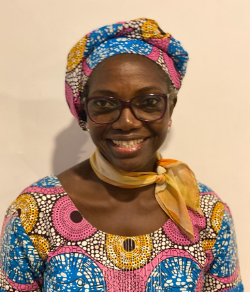
Associate Professor of Anthropology, Jeannette Wogaing specializes in women’s health, motherhood, and fatherhood in Cameroon, including in crisis situations and contexts of displacement. She brings expertise on Gender perspectives and approaches to researching forced migrations and displacement. She is also the National Secretary of the National Union of Teachers of Higher Education of Cameroon. She is the first woman in that position since its creation. She is treasurer of three associations and is habitually part of some programs and debates in many media in Cameroon.
wogaing.fotso4@gmail.com
Amadou Souleymanou (University of Douala-CERDYM)
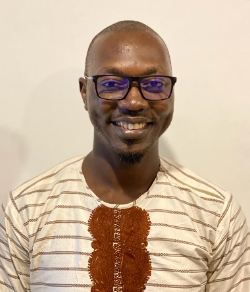
Assistant Professor of History, Amadou Souleymanou, leads the CERDYM research axis “Racisms, Exclusions, and Violences in Africa.” He is an expert on China-Africa and Japan-Africa relations. He brings racial/identity analysis, as well as empirical methods strengths—particularly in conducting oral research—to the training in Douala.
http://www.cerdym.com
Brenda Nachuah Lawyer (University of Douala-CERDYM)
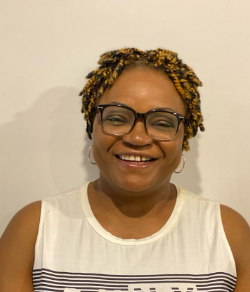
Associate Professor of Curriculum Studies and Teaching, Brenda Nachuah Lawyer is the Head of the Division for academic affairs students records and Research of the Faculty of Letters and Social Sciences, University of Douala-Cameroon., Presently teaching in the Higher Teachers' Training College for Technical Education; the University of Douala, She specializes in effective teaching and teacher education, motivated by the fact that the 21st-century society is driven by a digital revolution which requires teachers to reconsider their pedagogic practices in order to embrace the dynamism learners bring to the classroom and the learning process. Her interest (s) also lies in how the less privileged can continue education especially during crisis situations and in how current issues and happenings are linked to and can be improved upon through pedagogy and teaching. Following the recent experience in Cameroon, there is an urgent need for more proactive steps by education authorities to develop national pedagogic plans for relief or emergency education in preparation for any future crisis, so children do not miss out on their schooling. Lastly, she is interested in research on teaching methods that respond to the present technological dispensation and renders the traditional methods of teaching insufficient and inefficient to help learners acquire the necessary skills to proffer solutions to contemporary societal problems.
http://www.cerdym.org
Mary Boatemaa Setrana (Univ. of Ghana-Ctr. for Migration Studies)
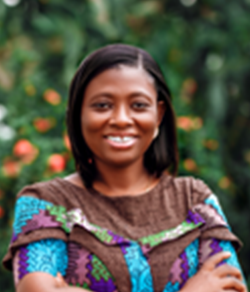
At UG, Mary Boatemaa Setrana, A Professor of Sociology and the Director of the Centre for Migration Studies, draws on her multidisciplinary background in sociology, political science, linguistics, gender, and migration to train students to conduct migration-related research using both quantitative and mostly qualitative techniques/skills such as community entry, reconnaissance survey, life history, in-depth interviews, participant and non-participant observations, and thematic analysis. She trains IRTG students in knowledge mobilization through varied means including world café, popularly used for policy dialogues among stakeholders.
https://cms.ug.edu.gh
Solomon Kofi Amoa (Sociology, Univ. of Ghana-Legon)
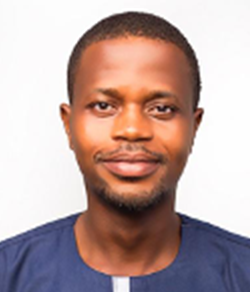
Dr Solomon Kofi Amoah is a collaborator, Frontiers of Belonging, International Research and Training Group (IRTG). He presently teaches Sociology at the University of Ghana. His research interests are the social organisation of work, non-profit sector studies, social protection systems, governance and sustainability, development, and labour migration issues. He has experience in research in African contexts. Dr. Amoah is experienced in qualitative and quantitative research approaches with analysis and writing skills. He has carried out research on the emergence and effects of extremist radicalism and terrorism in Africa, the political economy of CSOs in West Africa, CSOs’ sustainability in humanitarian regions, and the impact of the COVID-19 pandemic on the operations and programmes of non-profit organisations in the sub-region. He hopes to contribute to the renewed interest in building and managing social protection floors in Africa through research and training.
https://www.ug.edu.gh/sociology/staff/solomon-kofi-amoah
Christina Clark-Kazak (International Affairs, University of Ottawa)
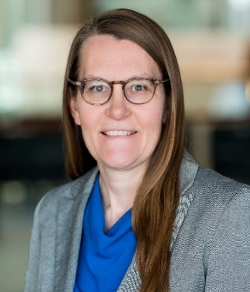
A Professor of Public and International Affairs, Christina Clark-Kazak, specializes in young people’s political participation, age discrimination in migration policy, and interdisciplinary methods and ethics in contexts of violence and displacement.
https://uniweb.uottawa.ca/members/2796
Andrew Ivaska (History, Concordia University)
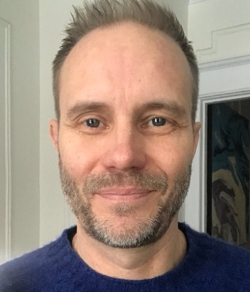
Associate Professor of History Andrew Ivaska of Concordia University focuses on political exile along “global 1960s’ African activist networks, training students to connect displacement and refuge-seeking to its political legacies. He draws on collaboration in graduate student training with colleagues at Makerere University (Uganda) and shares his experience in mobilizing public-facing web-based scholarship such as Stateless Histories, to teach students writing for academic and non-academic audiences.
https://www.concordia.ca/faculty/andrew-ivaska.html
Eric Allina (History, University of Ottawa)
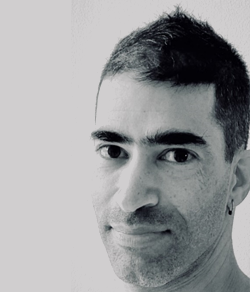
Associate Professor of History, Eric Allina, brings expertise on migration and mobility in regional and trans-regional contexts, examining African worker and student movement under varying degrees of coercion, from colonial-era slavery and forced labor to Cold War training and exchange programs.
https://uniweb.uottawa.ca/members/338
Boulou Ebanda de B’béri (Communications: Cultural Studies, uOttawa)
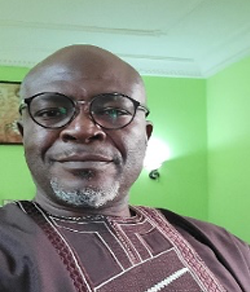
Dr. Boulou Ebanda de B’béri is a Full Professor of Communication, Media, and Cultural Studies at the University of Ottawa, The Founding-Director of the Audiovisual Media Lab for the study of Cultures and Societies (lamas-amlacs.org), and the First Special Advisor, Anti-Racism and Inclusive Excellence at the University of Ottawa. He brings expertise on Black Experiences and Global Perspectives on the Politics of Multiculturalism.
https://uniweb.uottawa.ca/members/1777
Abdoulaye Gueye (Sociology, University of Ottawa)

Professor of Sociology Abdoulaye Gueye consults with Carnegie Corp and CODESRIA (among others). He researches African intellectuals and mobility, focusing on their integration, via African universities, into international research networks.
https://uniweb.uottawa.ca/members/807/profile
Sena Dei-Tutu (University of Ghana, School of Law)
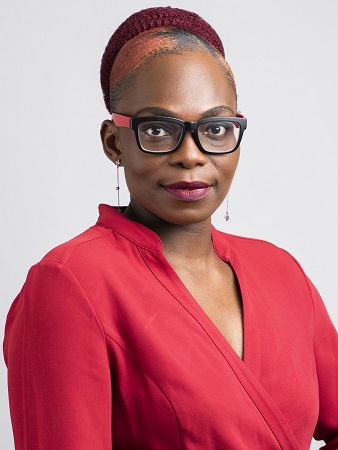
Dr. Sena Dei-Tutu is a Lecturer at the University of Ghana School of Law where she teaches the Law of Contract, International Law, Gender and the Law, International Human Rights Law, International Humanitarian Law, and National Security Law and Practice.
Her research spans the fields of data protection in Africa, international law, and African gender protection issues (especially in conflict regions).
She also has over twenty years of experience working on Rule of Law, Governance, and Security Sector issues in the West African sub-region.
https://law.ug.edu.gh/profile/Sena_Dei-Tutu
Partners
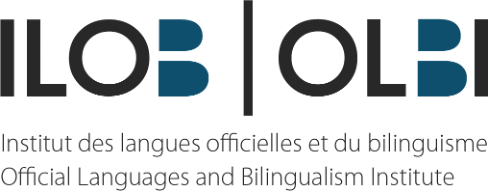
Official Languages and Bilingualism Institute (University of Ottawa)
The Official Languages and Bilingualism Institute (OLBI) has a mission to promote excellence in the fields of language acquisition and French-English bilingualism. Drawing on its repository of complementary language learning resources, OLBI designs intensive language courses for IRTG students in Ottawa to address their core language skills, applying them in immersion and work-based field experiences.
https://www.uottawa.ca/about-us/official-languages-bilingualism-institute
![Femmes Actantes led by Chantal Ndami [and Rose Ndengue]](https://fb.regeneratedidentities.org/project/RegID_Uploads/Team16f37f5bb7881810488013e5147703e1.png)
Femmes Actantes led by Chantal Ndami [and Rose Ndengue]
Femmes Actantes is a feminist non-profit organization that aims to contribute to the reduction of gender inequalities in sub-Saharan Africa and the promotion of inclusive local development that fully mobilizes the potential of African women. The Association is led by women of the African diaspora, who mobilize with women in struggle on the continent for more just societies, where women's rights are promoted and respected, their contribution to development recognized and their place in society valued. The association supports community-based feminist organizations that work daily to transform unequal gender relations and recognize the important role women play as breadwinners for their families, including in contexts of political and armed conflict in both rural and urban areas. The association mobilizes field activists, researchers, and experts in gender and development to share knowledge and perspectives on the experiences of African women.
https://www.cessma.org/NDAMI-Chantal-2132

Walk With Web, Inc., Kartikay Chadha
WWW is a federally registered Canadian corporation, working to support digital development and provide long-term sustainability for Social Sciences and Humanities research. The WWW team comprises students, recent graduates, scholars, and industry professionals located in Canada, the USA, Costa Rica, India, Nigeria, Sierra Leone, and Brazil. The team at WWW conducts research in Digital Humanities, Information Studies, Human-Computer Interaction, and Human-Information Interaction to support digital aspects of our client projects. They work with research groups at universities, independent researchers, and graduate students to support the digital development of their projects while providing training in technology and enhancing collaborative research. WWW’s contribution towards Frontiers of Belonging includes Project Website Development, Consultation, and the organization of digital skills development workshops in Ottawa and Accra, primarily focusing on principles and practices of designing websites as a tool for knowledge mobilization. The workshop covers conceptual approaches to organizing information for the world wide web including design, implementation, and management issues.
https://www.walkwithweb.org

University of Ottawa Library (Point Persons: Caroline Hyslop and Jennifer Dekker)
The Library’s participation will be led by Caroline Hyslop and Jennifer Dekker. Caroline Hyslop is the Associate University Librarian for Research Services and co-chair of the uOttawa Research Data Management Advisory Group. Jennifer Dekker is a Research Librarian in the Arts and Special Collections Department. The uOttawa Library will contribute to the initiative by supporting efforts to ensure that students and researchers have access to the scholarly content found in multidisciplinary databases, electronic journals, monographs, and datasets. Further, the Library will support students and researchers by offering training and support in database searching, developing search strategies, and literature review methodology. The library’s contribution includes but is not limited to designing and delivering orientation sessions, offering guidance and support for research methods and search strategies, and collaborating on the initiative to engage with library personnel in the partner universities' resource selection and management of scholarly resources.
https://www.uottawa.ca/library/
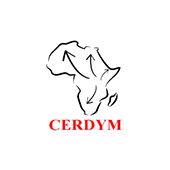
University of Douala, The Centre de Recherche sur les Dynamiques des Mondes Contemporains (CERDYM)
The Centre de Recherche sur les Dynamiques des Mondes Contemporains (CERDYM) at the University of Douala (UDo), of which Drs. Messina Mvogo and Souleymanou are among the founding members, is a research center specialized in the interdisciplinary study of contemporary mobility, inter-state relations, and African inter-ethnic relations. CERDYM draws together researchers from several disciplines including history, sociology, anthropology, political science, psychology, and education. CERDYM’s research activities – seminars, conferences, and peer-review of works in progress – offer opportunities to theoretically and methodologically examine how migrants build relationships in pluri-ethnic societies. CERDYM’s objective is to support researchers, postdocs, and doctoral students in breaking down the silos of their respective disciplines. CERDYM offers an intellectual space supportive of autonomous, independent research and brings experience in overcoming institutional barriers to create a collaborative, interdisciplinary working environment.

The uOttawa Human Rights Research and Education Centre (HRREC)
HRREC conducts activities to promote human rights of individuals and people. HRREC encourages an interdisciplinary approach and supports students’ and researchers’ engagement by providing a space for knowledge mobilization and exchange among university and community members. HRREC’s partnership ensures that students will each have access to a workstation in an open-concept workspace within the center, providing them with a sense of community. HRREC’s connections with Ottawa-area human rights activists and institutions will enable students who so desire to create linkages with Canadian human rights NGOs and practitioners.
https://www.uottawa.ca/research-innovation/hrrec
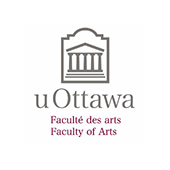

University of Ottawa, International Research and Experiential Learning
https://www.uottawa.ca/research-innovation/international-research-experiential-learning
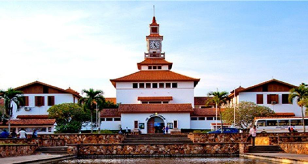
Balme Library, University of Ghana (point persons: Theodosia S. A. Adanu & Dr. Antonia Bernadette Donkor)
http://www.balme.ug.edu.gh/
Doctoral Students
Thelma Nyame (University of Ghana)
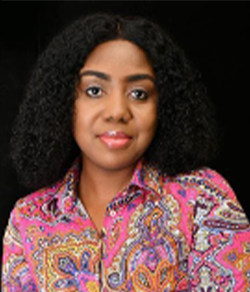
Thelma Nyame is an accomplished professional with expertise in banking, customer service, and relationship management. She holds a Master's degree in project management and a Bachelor's degree in economics and sociology from the University of Ghana-Legon. Currently pursuing a PhD in Migration Studies, her research focuses on "Climate Change-induced Displacement and Forced Migration in West Africa." Thelma's educational background and research interest position her to contribute valuable insights to the history of displacement and refuge-seeking narratives in West Africa.
https://ienabler.ug.edu.gh/pls/prodi41/w99pkg.mi_main_menu
https://www.linkedin.com/in/thelma-nyame
Hilary Elise Zeh (University of Douala, CERDYM)
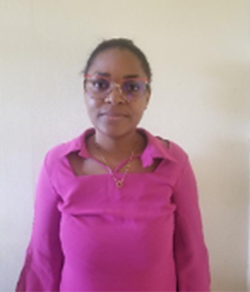
Hilary Elise Zeh, is a young Cameroonian student in the first year of the PhD cycle of the Department of Communication of the Faculty of Letters and Human Sciences of the University of Douala, specialty communication of organizations. Her doctoral thesis focuses on "The discourses of public and private organizations on/in the refugee camps of the East and Far North of Cameroon." This research studies the tensions in the discourses of public and private organizations on the reality of refugee camps in Cameroon. The objective of this reflection is to analyze the tension that is observed in the intersection of the melorative discourses of public organizations and the critical discourses of private organizations on the realities of living conditions and survival of refugees in the camps of the East and Far North that have become a social concern in Cameroon. This work intends to analyze the logics of the actors of these public and private organizations producing discourses in order to highlight the discursive nuances contained in these discourses. Finally, this study aims to show how the tensions between the discourses produced by these public and private organizations have an impact on the representations of the actors-receivers and on their living conditions.
https://www.linkedin.com/in/hilary-elise-zeh-69a35a26a
Augustine Kaku (University of Ghana)
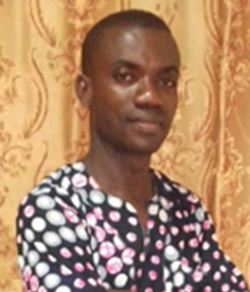
Augustine Kaku is a PhD student at the Sociology Department of the University of Ghana. He holds an MPhil Degree in Sociology from the same University. He has prior experience working as a Graduate Assistant at the Department of Sociology. His research areas include Mining and Migration, Environmental Sustainability and Natural Resource Management. His previous study was on the socioeconomic impact of oil and gas discovery in the Ellembelle District of Ghana. For his PhD research, he is currently working on ‘migration and the social and economic impact of mining’. He aspires for an academic career in the field of Development Sociology.
https://www.linkedin.com/in/augustine-kaku-0b837216b/
Etanga Awono Philippe (University of Douala, CERDYM)
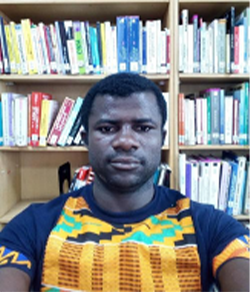
Philippe Etanga Awono is a young Cameroonian PhD student at the University of Douala in the Department of History. He is currently writing a doctoral thesis entitled "Places and conditions of reception of refugees in colonial and postcolonial Cameroon". It deals with the places and conditions of reception of refugees in both colonial and postcolonial periods in Cameroon. This research aims to analyze the governance of refugees in Cameroon through a socio-historical study of the places and conditions of reception of these people in situations of forced migration. He draws on the experience of the refugee camps' past to see whether the realities of the colonial period have been transferred to the post-colonial period or whether there have been changes. In addition to questioning the different actors who intervene in the places of reception of refugees, this work questions the interaction between the place of reception and the refugee himself. This leads him to address legal issues (reception conditions), socio-cultural aspects (transformations or not of the refugee), and economic issues (transformations of the place of reception by the refugee. His research interests include the history of mobility, political history, and the history of international relations.
https://www.linkedin.com/in/philippe-etanga-535544180
Gloria Lamptey (University of Ottawa)
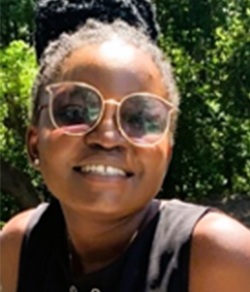
Gloria Lamptey is a Ph.D. History student at the University of Ottawa. Her research interest(s) largely lies in Africa's 'connectedness' to the Global Cold War with a particular focus on how notions of displacement and belonging intersect with Cold War policies. She focuses on how migration, education and broader societal attitudes towards cultural diversity shape the identity of African youth migrants. In seeking to offer a comprehensive understanding of complex issues surrounding migration from the global South to the global North, her doctoral research explores the experiences of Ghanaians who studied in the Soviet Union from the late 1950s to the 1980s. By investigating the challenges these migrants faced and how they navigated them; her research sheds light on remedies to displacement—derived from empirical research, grounded in Ghana yet also shaped by processes of change powered by forces from farther afield.
https://uniweb.uottawa.ca/members/5525/profile
Boris Lukic (University of Ottawa).
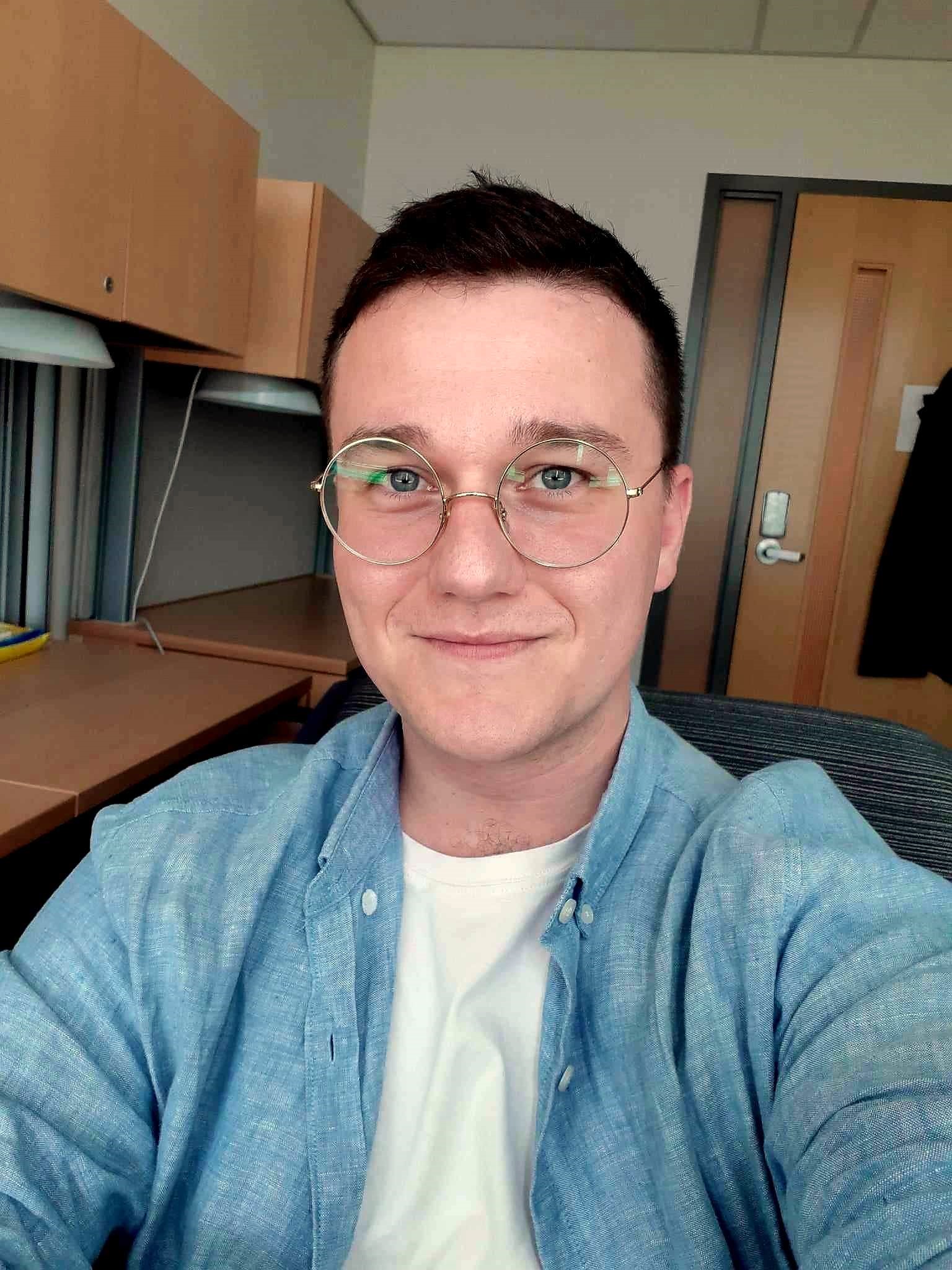
Boris Lukic is a Ph.D. History student at the University of Ottawa. His research interests include a critical approach to the history of ideas, examining the political thought of essayist Albert Memmi in relation to issues of identity, belonging, power structures as well as collective and protest movements in post-independence Tunisia. His research takes place in the context of the construction of the nation-state, with a focus on the evolution of human rights in Tunisia from the 1960s onwards. To this end, he focuses on the choices and decisions of the ruling elites, and their impact on collective and individual rights. By studying the societal and ideological issues at stake in post-independence Tunisian society, his research reveals the complexity of political and social dynamics, as well as the particularities of national narratives in the processes of transition, development and democratization of the Tunisian state.
https://uniweb.uottawa.ca/members/5524/profile
Advisory Council
Yolande Bouka, Blair Rutherford, Abdoulaye Gueye, Viviana Fernandez
Project Coordinators
Gloria Lamptey (University of Ottawa)
Michael Akagbor (University of Ghana)
